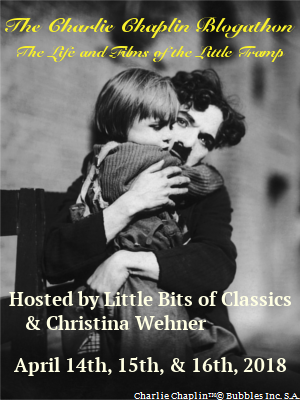 In the 2005 movie version of Pride and Prejudice, when Mr. Darcy proposes and is rejected (in the rain – my theory is that in this movie Elizabeth Bennett rejects him because he is so ungentlemanly as to propose instead of doing something constructive like getting the lady an umbrella or a carriage or even offering his coat), and among other things Elizabeth mentions his interference in the romance between Mr. Bingley and Jane Bennett as a reason for not liking him. She then proceeds to explain why Jane did not appear to Mr. Darcy to be in love with Mr. Bingley: “That’s because she’s shy…my sister hardly shows her true feelings to me.”
In the 2005 movie version of Pride and Prejudice, when Mr. Darcy proposes and is rejected (in the rain – my theory is that in this movie Elizabeth Bennett rejects him because he is so ungentlemanly as to propose instead of doing something constructive like getting the lady an umbrella or a carriage or even offering his coat), and among other things Elizabeth mentions his interference in the romance between Mr. Bingley and Jane Bennett as a reason for not liking him. She then proceeds to explain why Jane did not appear to Mr. Darcy to be in love with Mr. Bingley: “That’s because she’s shy…my sister hardly shows her true feelings to me.”
Shy? Around Elizabeth? Does she mean that her own sister Jane is shy around her? That would be awkward since the two sisters share a bed in this movie.
Perhaps I’m being a little ticky-tack here in my objections, but what Elizabeth really means here, I assume, is that Jane is reserved. The difference being whether one is silent because one is uncomfortable and afraid or because one is generally disinclined to speak of one’s feelings and deep thoughts.
The two words can often be confused. I had the meaning of both conflated in my mind, but Jane Austen actually possess great clarity on this point in all her books, especially in Persuasion, where she draws a distinction between the two. A shy person might be perfectly open and flamboyant around those they know, though completely quiet in company. It is only the reserved who do not often share their feelings, even with those they know and love.
In Persuasion, Anne Elliott is attempting to draw out Captain Benwick, partially as a kindness for a man who is suffering from the loss of his fiancé and partially so that she does not have to speak to her own ex-fiancé, Captain Wentworth:
“He [Captain Benwick] was shy, and disposed to abstraction; but the engaging mildness of her countenance, and gentleness of her manners, soon had their effect…For though shy, he did not seem reserved; it had rather the appearance of feelings glad to burst their usual restraints.”
 Anne Elliott later thinks Mr. Elliott, her cousin, is reserved. “Mr. Elliot was rational, discreet, polished, but he was not open. There was never any burst of feeling, any warmth of indignation or delight, at the evil or good of others.” and later she observes that “he is not a man, I think, to be known intimately soon.”
Anne Elliott later thinks Mr. Elliott, her cousin, is reserved. “Mr. Elliot was rational, discreet, polished, but he was not open. There was never any burst of feeling, any warmth of indignation or delight, at the evil or good of others.” and later she observes that “he is not a man, I think, to be known intimately soon.”
Jane Austen often seems to use reserve in regard to people who hold something back; they are reserved because they must be or else their secret will be out. This is true with Mr. Elliott, but also true for Jane Fairfax in Emma. Emma frequently complains about Jane Fairfax’s reserve and uses it as an excuse for her own dislike of her. It seems that Jane was always a trifle reserved, as a natural part of her temperment, but when she returns during the time of the book she is more reserved than ever and even Mr. Knightly notes it. “She is reserved; more reserved, I think, that she used to be.”
Jane Fairfax is, of course, hiding the fact of her engagement with Frank Churchill and it has made her more guarded than she was before. It is only when the secret is out that she is able to speak openly with Emma.
Reserve, however, does not have to be the result of having a secret. Many people are naturally reserved. This simply means, like Jane Bennett, that they are undemonstrative, even-tempered and less likely to share or discuss their intimate feelings. I think it could be argued that Jane Bennett, in the book, is reserved and it definitely could be argued that she is reserved in the 2005 movie. In fact, in the book, Elizabeth and Charlotte discuss how calm Jane appears, even though she’s in love and Charlotte is concerned that her calmness will not be sufficient encouragement for Mr. Bingley.
Fanny Price, on the other hand, in Mansfield Park, is timid and shy. She rarely has the courage to speak exactly what she thinks. It’s not because she wishes to hold something of herself back, but because she has been taught that she must hold herself back as a person of less importance. It makes her artificially reserved, and partially because she is hiding the fact that she loves Edmund Bertram from him and everyone else. I always felt great sympathy and understanding for Fanny. She is often considered one of Austen’s most mousy heroines, but I always had a strong feeling of protectiveness for her. I think it’s because I can see myself in her, the shyness and timidity, the tendency to make everything seem a bigger deal that it actually is and inclination towards reading and reverie.
 My sister and I, when we go out, are both quiet. However, the cause is different. She is reserved; I am shy. Shyness has to do with fear or discomfort. It’s like stage-fright and like stage-fright for certain people, it never quite goes away. It’s something you manage. I quite simply blank out around people I don’t know or am not comfortable with and the moment I get into a group larger than three or four, I clam up. My sister, on the other hand, is just not going to express her feelings in certain contexts. There is absolutely no fear involved at all.
My sister and I, when we go out, are both quiet. However, the cause is different. She is reserved; I am shy. Shyness has to do with fear or discomfort. It’s like stage-fright and like stage-fright for certain people, it never quite goes away. It’s something you manage. I quite simply blank out around people I don’t know or am not comfortable with and the moment I get into a group larger than three or four, I clam up. My sister, on the other hand, is just not going to express her feelings in certain contexts. There is absolutely no fear involved at all.
Reserved people, I might add, are absolutely the best listeners in the world. Reserve is also not synonymous with rudeness or an inability to interact socially. They might not expose their heart, but they can interact. It is the shy people who have more trouble with interaction.
My theory is that a reserved person feels that excessive sharing of emotions and thoughts is like exposing themselves in public. They are really and truly content to listen and hear. A shy person might like to participate, but doesn’t know how and can feel more awkward in their silence than a reserved person. However, if, like Anne Elliott, someone takes a little time to break through that shyness, shyness can be dispelled, in regards to that particular person, anyway. A reserved person, however, you have to catch in the act of sharing. It will come in a little confidence here, or a statement there. If you ask them a point blank question, they might not tell you; it has to come naturally in conversation.
I always defend shyness and reserve. I know such tendencies must often be overcome or overruled, but when extreme extroversion and frankness is often celebrated – even when frankness is supposedly being censured, it’s still half admired – and I read things about how not to be shy, as if there were something wrong with me, I can get a little defensive. After all, shyness and reserve can have its benefits – such people can be observant, tranquil, more likely to be comfortable with their own company, good listeners. And it’s hard for me to imagine myself not shy or even a little bit reserved. If I were the life of the party, I wouldn’t be me.
Shy and reserved people of the world, unite! Except we wouldn’t have much to say to each other once united…but that’s okay.







littlealmond
July 10, 2014 at 11:57 am
I love the distinction that you make in this article! In my studies of introversion, this is a distinction that has still puzzled me. I identify as shy.. but not reserved! With people I know, or with very small groups of people, namely one or two people, I can be flamboyant, giddy, very silly, and uninhibited. In the traditional classroom, I am stubbornly quiet.
I love, too, with how much detail you present the differences by examples from Jane Austen! Once I have time (which means, not in the next five weeks) I hope to read “Mansfield Park” and eventually “Emma” too.
I’ll leave it at that…I’ll get more self-conscious if I keep talking. 🙂
LikeLiked by 1 person
christinawehner
July 10, 2014 at 12:30 pm
Oh, I so identify about the traditional classroom! I never volunteered to speak, even when I knew the answer to a question. I practically sat on my hands and wouldn’t make eye contact with my professors so they hopefully wouldn’t ask me anything. 🙂
It never ceases to amaze me how much Jane Austen knew about human nature; each reading of one of her books seems to bring some new insight about how people behave. I think she was way ahead of her time, psychologically.
Have you ever read Quiet: The Power of Introverts? It’s really a fun read about introverts and how they differ from extroverts. I remember the author making the case that it is possible to be not only a shy introvert, or a non-shy introvert, but also a shy extrovert.
LikeLike
littlealmond
July 10, 2014 at 4:26 pm
Yes! I have read Quiet; I think it was last summer. Have you read “The Highly Sensitive Person” by Elaine Aron?
(Sorry if I don’t respond in too great length– I have a weekend trip to a family wedding— an event I said for months I wouldn’t go to.)
I remember the distinctions helping a lot with the way I understood other shy people and introverts.
LikeLike
christinawehner
July 14, 2014 at 10:55 am
I’ve never read it, but I really want to. I remember it being mentioned in the Quiet book. I’ll have to look that up.
Sorry for the tardiness of my reply. Hope you had a great weekend!
LikeLike
Andrea Lundgren
July 12, 2014 at 10:36 pm
I think you are right: there is a big difference between shy people and reserved people. The shy may not actually be quiet in a new, group setting, but they will always be uncomfortable, while the reserved will be comfortable but quiet. Though I am shy, I sometimes find myself saying more in a new environment than I intend, trying to hide my shyness in a joke or a smile when I am really just ill-at-ease.
LikeLiked by 1 person
christinawehner
July 14, 2014 at 10:49 am
True! I didn’t consider that, how a shy person might not be as quiet in a social setting as a reserved person, even though they are more uncomfortable. I suppose shyness can take many forms. I get quiet because I can’t really think what to say at all because I’m uncomfortable, so I couldn’t talk even if I wanted to and either sit silent or let the conversation lag. I miss my moments to enter in and usually only think of what to say after the conversation has moved on. 🙂
LikeLiked by 1 person
JanuarysDreamer
July 14, 2014 at 2:21 pm
I enjoyed this post – and the comments – So insightful! Unfortunately, I think I’m a little of both. Probably because I’m inclined towards moody 🙂
LikeLike
christinawehner
July 14, 2014 at 3:04 pm
So glad you enjoyed the post and comments!
I don’t think its unfortunate to be shy or reserved, though. It makes us unique and gives us our individual strengths and weaknesses. : )
I sometimes wish I wasn’t so shy or reserved, but then I think that my shyness and occasional reserve makes me more inclined to spend time with myself, which is where I find the time to think and write. It’s not that you have to be shy to write, only that if I personally were less shy, I wouldn’t write as much. 🙂
LikeLike
JanuarysDreamer
July 14, 2014 at 3:11 pm
Good point. It made me think of this TEDTalks video http://www.ted.com/talks/susan_cain_the_power_of_introverts
You might enjoy it.
LikeLike
christinawehner
July 14, 2014 at 9:54 pm
That was really fascinating! I love her history about how self-help books used to be about character and that when the economy changed and people began to work with people they didn’t know, the self-help books changed to things like “How to Win Friends and Influence People.” And her point about how the workplace and schools are not set up for introverts to learn at all…that they emphasis group interaction over autonomous work.
Thanks for sharing!
LikeLiked by 1 person